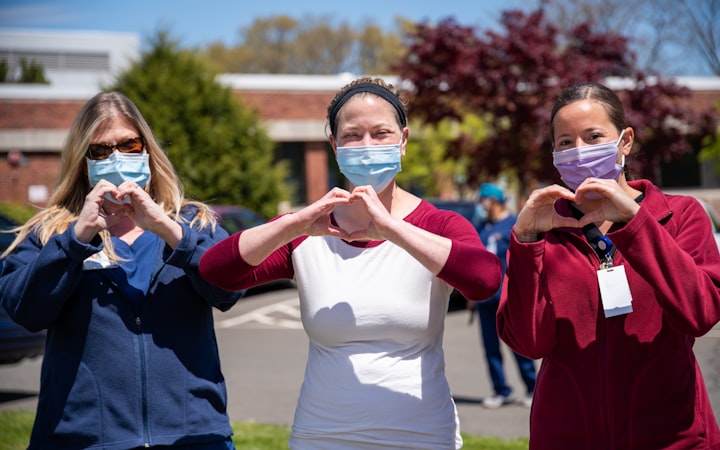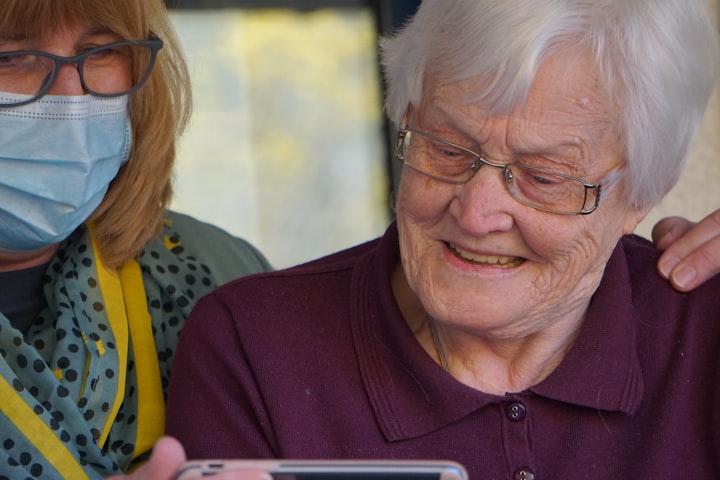The Things They Never Tell You
I Love My Job Because I Know I Make A Difference

If I had to pick the hardest thing about working in Aged and Disability Care, I would be torn between two options.
First: That it is impossible not to get at least slightly attached to the people you look after.
Second: That when/if something happens, it's the luck of the draw whether or not you'll ever know.
It wouldn't have been the first time one of my clients went to hospital and I never heard from them or went back to their house again. If you're lucky, someone in the office might close a customer account and take the time to send an email to pass on the vague details of what happened to the older lady who smiled and fed you biscuits, or the kindly man who told the same story over and over, or the couple who always made a point of thanking you before you left.
Perhaps the lady who knew you liked history and made a point of discussing a new book with you each week will return. Perhaps the woman who still touches up her make-up before she leaves the apartment will laugh over tea when you tell her about counting the weeks until she came out of Respite. Perhaps you'll see the old gentleman smile again, inviting you to share the joke about being ordered to drink more Milo, because he's too skinny.
Most of the time, they don't, and all you can do is wonder, and pray that it was just a case of needing more round-the-clock care than they got at home.

Working in Aged Care isn't glamourous, or well-paid, and it definitely isn’t for the faint of heart.
If we show up in the news cycle, its usually because of a strike attempting to be paid a living wage or fighting for mandatory staffing levels that actually reflect the amount of work we do. Hint: if two people are required for manual handling of a patient, then you need at least three people rostered on at the time. Two for the patient, and one to deal with whatever else is going on at the time with the phone, visitors, and other patients.
If you'll pardon the pun, Aged and Disability Care truly is a Labour of Love, because it's not a field you last long in if you don't have a passion for what you do.
There's also a lot of uncertainty. You get to know the people you work with, but there's no way of predicting how long you'll have with them. Maybe they're here for a week or two while their family is unavailable. Maybe you'll see them once and then never again. Maybe they'll become a regular.
Getting attached is easy, especially when a large part of your job is to make the elder feel welcome and valued.
Remaining detatched and professional is hard. Letting go and telling yourself that it's nothing to concern yourself with is harder. Not caring at all is impossible.

Aged and Disability Care can be split into two major areas: Residential and Community.
Residential Care takes place in a dedicated and staffed facility. Staff are rostered on 24/7/365, usually on a rotating basis. Legally, there should be at least ten hours between shifts
Practically... well, that’s a different story, especially these last 18 months.
Community Care is where a Care Support Worker comes out to the person’s home, an initiative designed to help pensioners stay in their own homes as long as possible. Services include showering, whether that means physically assisting or just as a buddy in case of falls; cooking and meal prep; cleaning; social support in cases where a client lives alone and has no nearby family; transport to and from appointments; shopping; or some combination of the above.
Retirement villages fall somewhere between the two. Usually run by charities, residents will live in their own apartments, but how much care or assistance they receive, if any, is up to them. There is a cafeteria that they can attend for meals, or they can buy their own groceries and cook for themselves. There are on-site staff for care and cleaning, as well as to run the amenities, organise activities, etc., but it's up to the residents if they utilise those, accept help from an outside organisation, or do without.

My job is important because without Care Support Workers, there isn’t an option to just “do for themselves”.
If I’m not there and a replacement isn’t available (about half my shifts are filling in for someone who called in sick), then someone doesn’t shower that day, and possibly not until their next service. Someone suffers the mental effects of isolation. Someone misses a doctor appointment, or has to pay extra to get their weekly shopping delivered. Someone misses a meal, because their hands shake, or are too arthritic to prepare it themselves.
It’s hard work, (and harder to live off without a second job), but it’s one of the most rewarding things I’ve done in my life.
About the Creator
Natasja Rose
I've been writing since I learned how, but those have been lost and will never see daylight (I hope).
I'm an Indie Author, with 30+ books published.
I live in Sydney, Australia






Comments
There are no comments for this story
Be the first to respond and start the conversation.